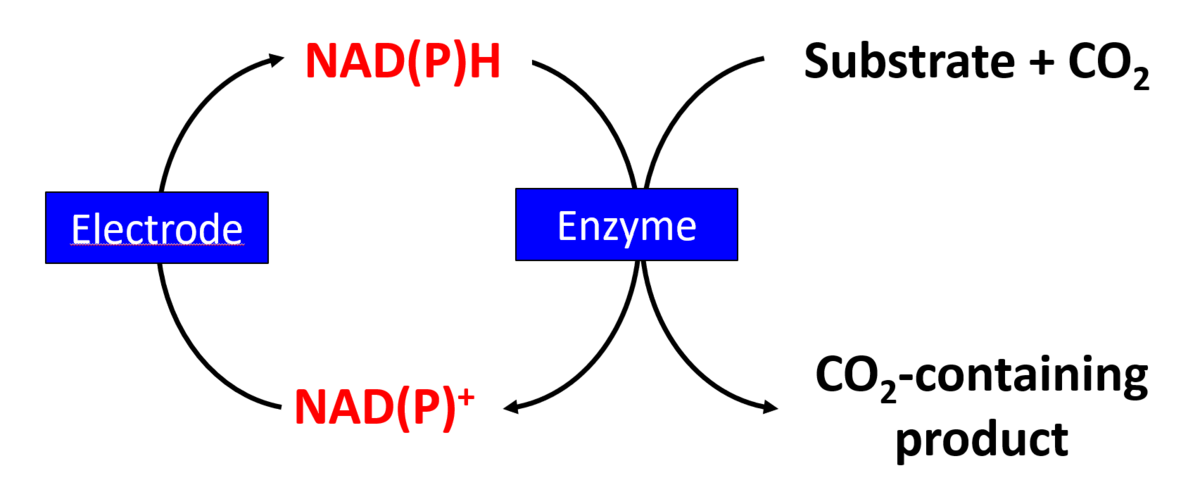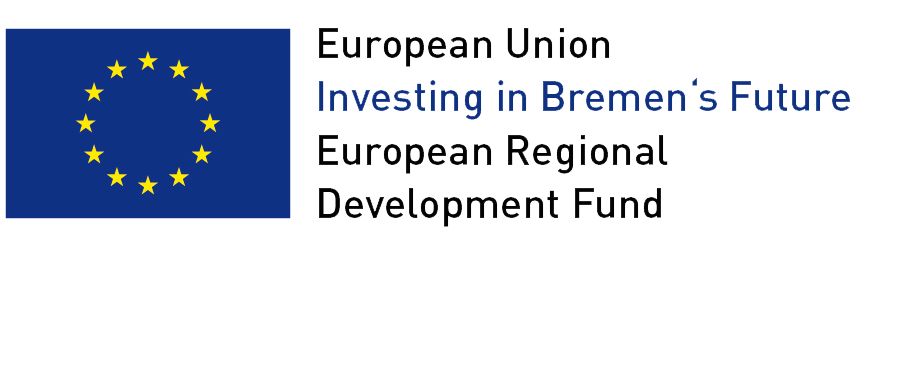Bio-electrochemical CO2-Reduction: REDUCTO
The project REDUCTO (bio-electrochemical CO2-reduction) is a collaborative project between the research groups of Ralf Dringen (Neurobiochemistry) and Jorg Thöming (Chemical Process Engineering) that has been supported by the BAB-Bremer Aufbau Bank via funds provided by the Applied Environmental Research (AUF) program of the State of Bremen and by the European Fonds for Regional Development (EFRE) of the European Union.
The REDUCTO project aims to develop a bio-electrochemical system that allows the fixation of CO2 and the subsequent enzymatic generation of chemicals. CO2 will be enzymatically reduced in reactions that consume electrons provided by the cosubstate NADH which becomes oxidized to NAD+ in this reaction. In a subsequent electrochemical process at a suitable electrode the NADH consumed will be regenerated from NAD+ in a cycling process. A high selectivity of electrochemical NADH regeneration as well as high enzymatic reactivity are important parameters for effective bio-electrochemical CO2 fixation that will be investigated and optimized.

Recent publications
E. Aamer, J. Thöming, M. Baune, N. Reimer, R. Dringen, M. Romero, I. Bösing (2022)
Influence of electrode potential, pH and NAD+ concentration on the electrochemical NADH regeneration.
Sci. Rep. 12, 16380.
doi: 10.1038/s41598-022-20508-w
J. Meyer, M. Romero, J. Thöming, M. Baune, N. Reimer, R. Dringen, I. Bösing (2023)
Experimental insights into electrocatalytic [Cp*Rh(bpy)Cl]+-mediated NADH regeneration.
Sci. Rep. 13, 22394.
doi.org/10.1038/s41598-023-49021-4
Dieses Vorhaben wurde aus Mitteln des Europäischen Fonds für regionale Entwicklung (EFRE) gefördert.



